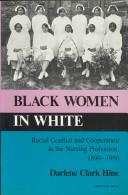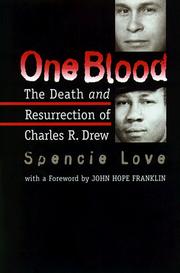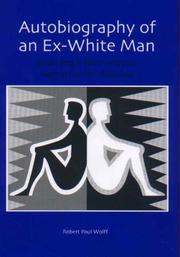| Listing 1 - 10 of 13 | << page >> |
Sort by
|
Book
ISBN: 1782047603 1847011411 Year: 2016 Publisher: Woodbridge, Suffolk : James Currey, an imprint of Boydell & Brewer Ltd.,
Abstract | Keywords | Export | Availability | Bookmark
 Loading...
Loading...Choose an application
- Reference Manager
- EndNote
- RefWorks (Direct export to RefWorks)
This revisionary account of the Soweto Uprising of June 1976 and the decade preceding it transforms our understanding of what led to this crucial flashpoint of South Africa's history. Brown argues that far from there being "quiescence" following the Sharpeville Massacre and the suppression of African opposition movements, during which they went underground, this period was marked by experiments inresistance and attempts to develop new forms of politics that prepared the ground for the Uprising. Students at South Africa's segregated universities began to re-organise themselves as a political force; new ideas about race reinvigorated political thought; debates around confrontation shaped the development of new forms of protest. The protest then began to move off university campuses and ontothe streets: through the independent actions of workers in Durban, and attempts by students to link their struggles with a broader agenda. These actions made protest public once again, and helped establish the patterns of popular action and state response that would come to shape the events in Soweto on 16 June 1976. Julian Brown is a Lecturer in the Department of Political Studies atthe University of the Witwatersrand, Johannesburg.Southern Africa (South Africa, Namibia, Lesotho, Swaziland & Botswana): Jacana
'throws new light on the background to the Soweto Uprising, providing insight into white and black student politics, worker protest and broader dissent' - William Beinart, University of Oxford
'an extremely important contribution to thehistoriography on protest in South Africa. It links black and white student protests (too often studied in isolation from one another) to workers' movements by looking at the changing forms of protest during the 1960s and 1970s, and the apartheid government's changing responses.' - Anne Heffernan, University of the Witwatersrand. 'By showing how the Soweto Uprising served as a precursorfor later historical and political events, the author convincingly shows the continuity from one from one protest and decade to the next.' - Dawne Curry, University of Nebraska-Lincoln.
South Africa --- History --- Soweto Uprising (South Africa : 1976) --- 1976 --- POLITICAL SCIENCE / History & Theory. --- 1976. --- African Studies. --- South Africa. --- Soweto Uprising. --- aparthied. --- diaspora. --- globalization. --- political science. --- postcolonialism. --- protest. --- racial relations. --- racism. --- revolution. --- segregation.
Dissertation
Year: 2019 Publisher: Liège Université de Liège (ULiège)
Abstract | Keywords | Export | Availability | Bookmark
 Loading...
Loading...Choose an application
- Reference Manager
- EndNote
- RefWorks (Direct export to RefWorks)
This thesis analyzes how Barack Obama's election influenced the development of African American cinema during that period. With a panel of 30 films made by Black filmmakers released between 2008 and 2017, the study tests three hypotheses on the kind of cinema that emerged during the Obama years. We found that two forms of cinema co-existed during that period, mostly delimited by the fact they are from Hollywood or from independent cinema. Nonetheless, we point out the fact that Obama's election gave a confidence boost to the Black movie industry by allowing it to express its voice regarding various topics, previously taboo. Ce mémoire analyse comment l'élection de Barack Obama a influencé le developpement du cinéma Afro-Américain de cette période. Avec un panel de 30 films réalisés par des Noirs et sortis entre 2008 et 2017, le travail teste trois hypothèses concernant le type de cinéma qui émerge durant les années Obama. Nous avons découvert que deux formes de cinéma co-existait pendant la période, et qu'ils se différenciaient la plupart du temps par leur appartenance au cinéma Hollywoodien ou indépendant. Néanmoins, nous montrons que l'élection d'Obama a donné un coup de boost à la production Afro-Américaine en lui permettant de s'exprimer sur plusieurs sujets, autrefois tabous.
American studies --- Obama Effect --- Black Cinema --- Racial Relations --- Film studies --- Cultural Studies --- Political Science --- Post-racial America --- Etudes Americaines --- Barack Obama --- Cinéma Afro-Américain --- Droit, criminologie & sciences politiques > Sciences politiques, administration publique & relations internationales
Book
ISBN: 022613606X 9780226136066 9780226135908 022613590X Year: 2014 Publisher: Chicago London
Abstract | Keywords | Export | Availability | Bookmark
 Loading...
Loading...Choose an application
- Reference Manager
- EndNote
- RefWorks (Direct export to RefWorks)
In the spring of 1915, Chicagoans elected the city's first black alderman, Oscar De Priest. In a city where African Americans made up less than five percent of the voting population, and in a nation that dismissed and denied black political participation, De Priest's victory was astonishing. It did not, however, surprise the unruly group of black activists who had been working for several decades to win representation on the city council. Freedom's Ballot is the history of three generations of African American activists-the ministers, professionals, labor leaders, clubwomen, and entrepreneurs-who transformed twentieth-century urban politics. This is a complex and important story of how black political power was institutionalized in Chicago in the half-century following the Civil War. Margaret Garb explores the social and political fabric of Chicago, revealing how the physical makeup of the city was shaped by both political corruption and racial empowerment-in ways that can still be seen and felt today.
African Americans --- Politics and government --- Civil rights --- History --- Chicago (Ill.) --- Race relations --- Political aspects. --- african american, black experience, america, united states, politics, political, freedom, justice, injustice, oppression, chicago, abolition, slavery, great migration, history, historical, oscar de priest, community, elections, city council, activist, activism, social studies, true story, government, academic, scholarly, research, college, university, textbook, 20th century, urban, race, racism, racial relations, illinois, midwest, leadership.
Book
ISBN: 0837176913 Year: 1975 Publisher: Westport (Conn.) Greenwood
Abstract | Keywords | Export | Availability | Bookmark
 Loading...
Loading...Choose an application
- Reference Manager
- EndNote
- RefWorks (Direct export to RefWorks)
Discrimination in sports --- Sports --- Race Relations --- 796 <68> --- 316.7:796 --- 316.7:796 Sociologie van de sport --- Sociologie van de sport --- Athletics --- Athletic --- Sport --- Exercise Therapy --- Physical Exertion --- Exercise --- Exercise Movement Techniques --- Interracial Relations --- Racial Relations --- Interracial Relation --- Relation, Interracial --- Relations, Interracial --- Relations, Race --- Relations, Racial --- Psychology, Social --- Field sports --- Pastimes --- Recreations --- Recreation --- Games --- Outdoor life --- Physical education and training --- South Africa. --- Republic of South Africa --- Union of South Africa --- Sociology of sport --- National movements --- South Africa

ISBN: 0585211515 0253205298 9780585211510 0253327733 9780253327734 9780253205292 0253056950 9780253056955 Year: 1989 Publisher: Bloomington, Ind. Indiana University Press
Abstract | Keywords | Export | Availability | Bookmark
 Loading...
Loading...Choose an application
- Reference Manager
- EndNote
- RefWorks (Direct export to RefWorks)
African American nurses --- Nursing --- African Americans --- History of Nursing --- Race Relations --- History. --- history --- United States --- Race relations --- Relations, Race --- Nursing, History --- History Nursing --- History Nursings --- Nursing Histories --- Nursing History --- Nursings, History --- Nurses --- Nursing Care --- Americans, African --- Afro-American nurses --- Negro nurses --- Nurses, African American --- Psychology, Social --- African-Americans --- African-American --- African Americans in medicine --- Interracial Relations --- Racial Relations --- Interracial Relation --- Relation, Interracial --- Relations, Interracial --- Relations, Racial --- African American --- Afro-American --- Afro-Americans --- Afro American --- Afro Americans --- American, African --- Black Americans --- American, Black --- Americans, Black --- Black American --- African American nurses. --- Race relations. --- Integration, Racial --- Race problems --- Race question --- Ethnology --- Social problems --- Sociology --- Ethnic relations --- Minorities --- Racism

ISBN: 0807863068 9780807863060 0807822507 9780807822500 0807846821 9780807846827 9798890880710 Year: 1996 Publisher: Chapel Hill, NC
Abstract | Keywords | Export | Availability | Bookmark
 Loading...
Loading...Choose an application
- Reference Manager
- EndNote
- RefWorks (Direct export to RefWorks)
One Blood traces the life of the famous black scientist and surgeon Dr. Charles Drew and the well-known legend about his death. On April 1, 1950, Drew, then forty-five years old, died after an auto accident in rural North Carolina. Within hours, rumors spread: he had bled to death because a whites-only hospital refused to treat him.
Discrimination in medical care --- Race relations --- African Americans. --- Physicians. --- Delivery of Health Care --- Prejudice. --- Race Relations. --- Race relations (in religion, folklore, etc.) --- Interracial Relations --- Racial Relations --- Interracial Relation --- Relation, Interracial --- Relations, Interracial --- Relations, Race --- Relations, Racial --- Psychology, Social --- Race discrimination in medical care --- Medical care --- Anti-Semitism --- Implicit Bias --- Islamophobia --- Anti Semitism --- Anti-Semitisms --- Bia, Implicit --- Bias, Implicit --- Islamophobias --- Prejudices --- Physician --- African-Americans --- African American --- African-American --- Afro-American --- Afro-Americans --- Afro American --- Afro Americans --- American, African --- History --- history. --- Drew, Charles Richard, --- Drew, Charles R. --- Death and burial. --- Legends. --- United States --- United States. --- Race relations. --- Race question --- Black Americans --- American, Black --- Americans, Black --- Black American --- Negro --- African Americans --- Blacks --- Negroes
Book
ISBN: 9781580056779 9781580056786 1580056776 Year: 2018 Publisher: New York, N.Y. Seal Press
Abstract | Keywords | Export | Availability | Bookmark
 Loading...
Loading...Choose an application
- Reference Manager
- EndNote
- RefWorks (Direct export to RefWorks)
"An actionable exploration of today's racial landscape, offering straightforward clarity that readers of all races need to contribute to the dismantling of the racial divide. Police brutality trials, white supremacist rallies, Black Lives Matter protests. Race is the story behind many of the issues that make headlines every day. But to talk about race itself--to examine the way it shapes our society, visibly and invisibly--can feel frightening and overwhelming, and even dangerous. In [this book], Ijeoma Oluo offers a clarifying discussion of the racial landscape in America, addressing head-on the issues that divide us. Positioned to bridge the gap between people of color and white Americans struggling with race complexities, Oluo explains the concepts that continue to elude everyday Americans, and answers the questions readers don't dare ask, like 'What is cultural appropriation?' 'Why do I keep being told to check my privilege?' and 'If I don't support affirmative action, does that make me racist?' With language that's bold, prescient, funny, and finely tuned, Oluo offers hope for a better way by showing what's possible when connections are made across the divide."
Social problems --- United States --- Intercultural communication --- Racism --- Race Relations --- Communication --- BPB9999 --- Communication Programs --- Communications Personnel --- Misinformation --- Personal Communication --- Social Communication --- Communication Program --- Communication, Personal --- Communication, Social --- Communications, Social --- Personnel, Communications --- Program, Communication --- Programs, Communication --- Social Communications --- Interracial Relations --- Racial Relations --- Interracial Relation --- Relation, Interracial --- Relations, Interracial --- Relations, Race --- Relations, Racial --- Psychology, Social --- Cross-cultural communication --- Culture --- Cross-cultural orientation --- Cultural competence --- Multilingual communication --- Technical assistance --- Anthropological aspects --- United States. --- Race relations. --- Race question --- sociologie --- cultuursociologie --- maatschappijkritiek --- racisme --- eenentwintigste eeuw --- geschiedenis --- politiek --- Verenigde Staten --- Afro-Amerikanen --- 130.2 --- United States of America
Book
ISBN: 902650733X Year: 1986 Publisher: Lisse Swets en Zeitlinger
Abstract | Keywords | Export | Availability | Bookmark
 Loading...
Loading...Choose an application
- Reference Manager
- EndNote
- RefWorks (Direct export to RefWorks)
Adoption. --- Psychology, Child. --- Interpersonal Relations. --- Race Relations. --- 347.63 --- adoptie --- kinderpsychologie --- integratie --- #SBIB:HIVA --- #SBIB:316.356.2H3690 --- Desegregation --- Relations, Race --- Psychology, Social --- Gender Issues --- Husband-Wife Communication --- Partner Communication --- Relations, Gender --- Gender Relations --- Social Interaction --- Communication, Husband-Wife --- Communication, Partner --- Communications, Husband-Wife --- Communications, Partner --- Gender Issue --- Gender Relation --- Husband Wife Communication --- Husband-Wife Communications --- Interaction, Social --- Interactions, Social --- Interpersonal Relation --- Issue, Gender --- Issues, Gender --- Partner Communications --- Relation, Gender --- Relation, Interpersonal --- Relations, Interpersonal --- Social Interactions --- Friends --- Emotional Intelligence --- Psychology, Infant --- Psychology, Pediatric --- Child Psychology --- Infant Psychology --- Pediatric Psychology --- Child --- Infant --- Psychology, Developmental --- Adoptions --- Kinderrecht. Jeugdrecht. Afstamming. Adoptie. Kinderbescherming. Proefbuisbaby. Draagmoeder. Leenmoeder.--(huwelijksrecht) --- 362.7 --- 159.987 --- 301.17 --- Gezinssociologie: adoptie --- psychology --- 347.63 Kinderrecht. Jeugdrecht. Afstamming. Adoptie. Kinderbescherming. Proefbuisbaby. Draagmoeder. Leenmoeder.--(huwelijksrecht) --- Child, Adopted --- Interracial Relations --- Racial Relations --- Interracial Relation --- Relation, Interracial --- Relations, Interracial --- Relations, Racial --- Adoption --- Psychology, Child --- Interpersonal Relations --- Race Relations --- Social Relationships --- Relationship, Social --- Relationships, Social --- Social Relationship --- Social Behavior
Book
ISBN: 9781469617831 1469617838 9781469617848 1469617846 9781469617855 1469617854 9798890844842 Year: 2014 Publisher: Chapel Hill, NC
Abstract | Keywords | Export | Availability | Bookmark
 Loading...
Loading...Choose an application
- Reference Manager
- EndNote
- RefWorks (Direct export to RefWorks)
Ethnic groups --- Latin America --- Race relations --- Ethnic Groups --- Cross-Cultural Comparison --- Race Relations --- Interracial Relations --- Racial Relations --- Interracial Relation --- Relation, Interracial --- Relations, Interracial --- Relations, Race --- Relations, Racial --- Psychology, Social --- Transcultural Studies --- Comparison, Cross-Cultural --- Comparisons, Cross-Cultural --- Cross Cultural Comparison --- Cross-Cultural Comparisons --- Studies, Transcultural --- Study, Transcultural --- Transcultural Study --- Cultural Characteristics --- Culture --- Ethnicity --- Nationality --- Ethnic Group --- Ethnic identities --- Ethnic nations (Ethnic groups) --- Groups, Ethnic --- Kindred groups (Ethnic groups) --- Nationalities (Ethnic groups) --- Peoples (Ethnic groups) --- Ethnology --- Latin America. --- Asociación Latinoamericana de Libre Comercio countries --- Neotropical region --- Neotropics --- New World tropics --- Spanish America --- #KVHA:Taalkunde; Spaans --- #KVHA:Cultuurgeschiedenis; Latijns-Amerika --- #KVHA:Ethniciteit; Latijns-Amerika --- Nationalities --- Ethnic groups - Latin America - Cross-cultural studies --- Latin America - Race relations - Cross-cultural studies

ISBN: 1580461808 1580463134 9786612080555 1282080555 158046677X Year: 2005 Publisher: Rochester, NY : University of Rochester Press,
Abstract | Keywords | Export | Availability | Bookmark
 Loading...
Loading...Choose an application
- Reference Manager
- EndNote
- RefWorks (Direct export to RefWorks)
Autobiography of an Ex-White Man is an intensely personal meditation on the nature of America by a White Philosopher who joined a Black Studies Department and found his understanding of the world transformed by the experience. The book begins with an autobiographical narrative of the events leading up to Wolff's transfer from a Philosophy Department to the W. E. B. Du Bois Department of Afro-American Studies at the University of Massachusetts, and his experiences in the Department with his new colleagues, all of whom had come to Academia from the Civil Rights Movement of the 1960s.
Wolff discovered that the apparently simple act of moving across campus to a new Department in a new building worked a startling change in the way he saw himself, his university, and his country. Reading as widely as possible to bring himself up to speed in his new field of academic responsibility, Wolff realized after a bit that his picture of American history and culture was undergoing an irreversible metamorphosis. America, he realized, has from its inception been a land both of Freedom and of Bondage: Freedom for the few, and then for those who are White; Bondage at first for the many, and then for those who are not White. Slavery is thus not an aberration, an accident, a Peculiar Institution -- it is the essence and core of the American experience.
Wolff's optimistic outlook leads him to express the hope that our acknowledging the realities of America's racial history and present will begin to tear down the formidable barrier to change. He sees this refashioning of the American story as a first step toward the crafting of a truly liberatory project.
Robert Paul Wolff is Professor of Afro-American Studies at the University of Massachusetts-Amherst and the author of numerous books, including Introductory Philosophy and In Defense of Anarchism.
African Americans --- Study and teaching --- Historiography --- Civil rights --- United States --- Race relations --- African American philosophy --- Whites --- Massachusetts --- Amherst (Mass.) --- Biography --- College teachers --- Philosophers --- Wolff, Robert Paul --- University of Massachusetts at Amherst --- African American philosophy. --- Scholars --- Academicians --- Academics (Persons) --- College instructors --- College lecturers --- College professors --- College science teachers --- Lectors (Higher education) --- Lecturers, College --- Lecturers, University --- Professors --- Universities and colleges --- University academics --- University instructors --- University lecturers --- University professors --- University teachers --- Teachers --- White persons --- Ethnology --- Caucasian race --- Afro-American philosophy --- Philosophy, African American --- Philosophy, American --- African American studies --- Afro-American studies --- Black studies --- Study and teaching. --- Historiography. --- Civil rights. --- Faculty --- Wolff, Robert Paul. --- University of Massachusetts at Amherst. --- Race relations. --- White people --- American History. --- Black Studies Department. --- Change. --- Liberatory Project. --- Modernity. --- Racial History. --- Racial Relations. --- Slavery. --- White Philosopher.
| Listing 1 - 10 of 13 | << page >> |
Sort by
|

 Search
Search Feedback
Feedback About UniCat
About UniCat  Help
Help News
News